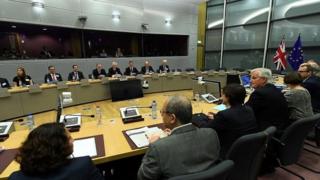 Image copyright
Image copyright
Reuters
Brexit Secretary David Davis has said he is entering negotiations on the UK’s exit from the EU in a “positive and constructive” frame of mind.
As he began talks in Brussels, he said he was determined to build a “strong and special partnership” with the EU.
Chief EU negotiator Michel Barnier said he wanted to agree key priorities and a timetable for discussions.
Subjects for the negotiations include the status of expats, the UK’s “divorce bill” and the Northern Ireland border.
The UK is set to leave the EU by the end of March 2019 following last year’s referendum vote.
- Brexit: Everything you need to know
- The key issues in EU/UK talks
- Business call for market access after Brexit
Day one of the negotiations, at the European Commission buildings in Brussels, will be followed by a joint press conference this evening by Mr Davis and the EU’s chief negotiator Michel Barnier, a former French foreign minister and EU commissioner.
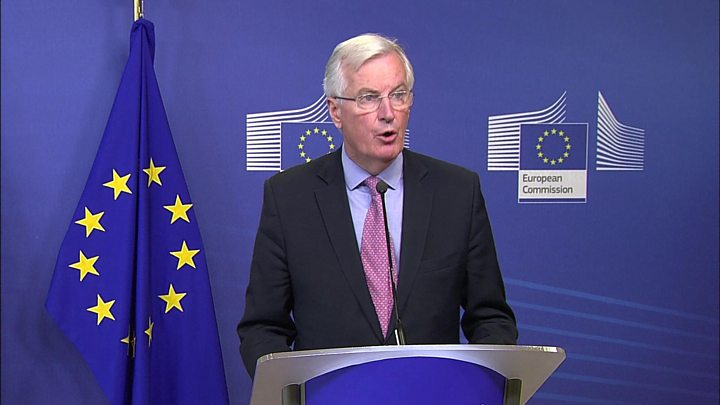
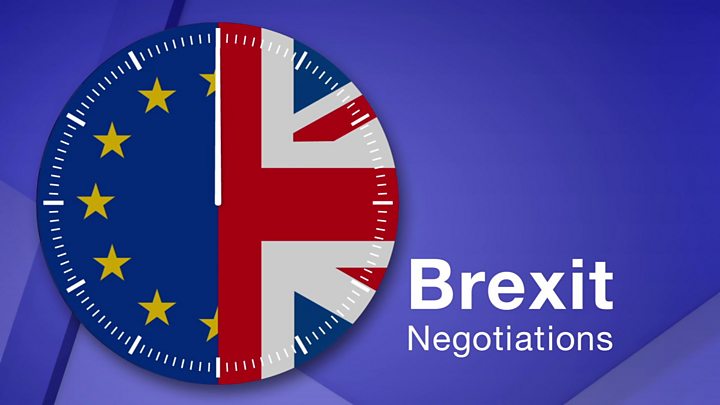
The BBC’s Europe editor Katya Adler said the opening session would focus on basic issues of procedure such as how often the two men and their teams will meet and in what order items will be discussed.
Above all, she added, it would be a “trust-building exercise” after all the “mud-throwing” of recent months.
Arriving in Brussels accompanied by a team of British officials, Mr Davis said there would be “challenges” ahead but he believed the two sides could reach an agreement on the terms of the UK’s exit which “works in the best interests of all citizens”.
“We are starting this negotiation in a positive and constructive tone, determined to build a strong and special partnership between ourselves and our European allies and friends for the future.”
Reflecting on the Finsbury Park attack in north London, he added: “In testing times like these, we are reminded of the values and resolve we share with our closest allies in Europe. There is more that unites us than divides us.”
Image copyright
EPA
The two sides have got round a table for the first time
Image copyright
EPA
The Brexit secretary was flanked by leading officials Tim Barrow and Oliver Robbins
Mr Barnier said a “constructive” opening to negotiations was vital in setting the tone for what he hoped would be an “orderly” process.
“We must first tackle the uncertainties caused by Brexit – first, for citizens but also for the beneficiaries of EU policies and for the impact on borders, in particular Ireland,” he said.
- The people who will negotiate Brexit
- What are the different Brexit options?
- Scots should be at EU talks says Tory MEP
The BBC has been told by European Union sources that the talks will follow the EU’s preferred pattern of exit negotiations first, with the future relations between the two sides – including the free trade deal the UK is seeking – at a later date.
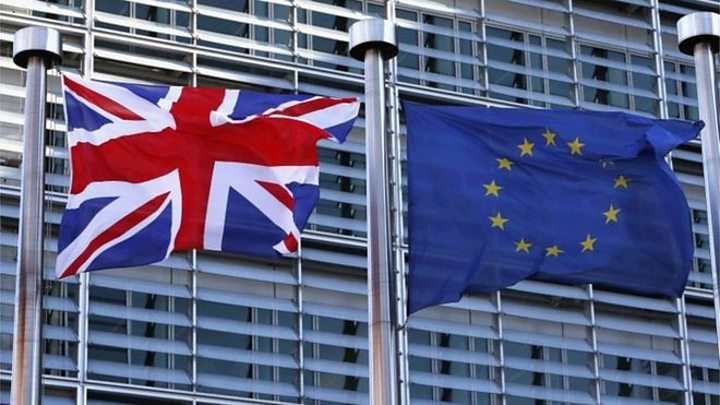
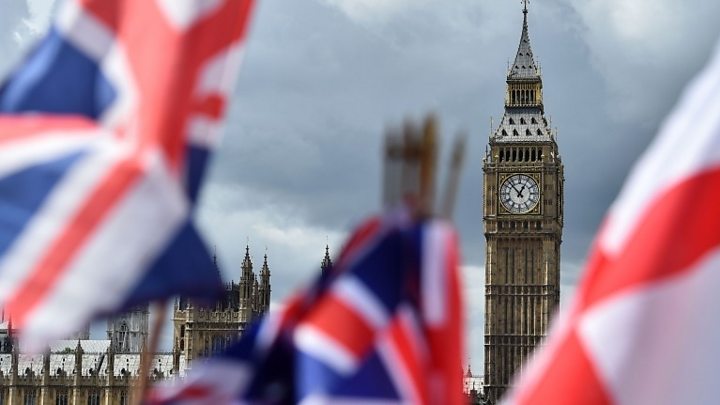
Five major UK business bodies have come together to call for continued access to the European single market until a final Brexit deal is made with the EU.
In a letter to Business Secretary Greg Clark they urged the government to “put the economy first”.
The letter is from the British Chambers of Commerce, Confederation of British Industry, EEF, Federation of Small Businesses and Institute of Directors.
Image copyright
AP
On the eve of talks, Chancellor Philip Hammond issued a warning about the implications of the UK leaving the EU without a deal in place, telling the BBC’s Andrew Marr Show that having no deal would be “a very, very bad outcome for Britain”.
Environment Secretary Michael Gove said he believed a “good deal” could be struck but that Theresa May was right to insist that the UK would not sign up to anything which “harmed” the UK.
He told BBC Radio 4’s Today that by leaving the EU, the UK could “revive” its fishing industry and provide “better protection” for farmers. Asked whether his claim during last year’s referendum that Brexit would reduce food prices was deliverable, he replied “yes, I do”.
He suggested there was “no tension” between economic and social imperatives when it came to immigration, saying Brexit would give the UK “democratic control of our borders” and the freedom to decide numbers “in accordance with economic and other needs”.
Image copyright
Reuters
The talks are expected to take about 18 months
Former Marks and Spencer chairman Lord Rose, who chaired the Stronger In campaign last year, said he was reassured that economic considerations were “top of the pile” but ministers needed to be realistic with the public.
“Let’s communicate with people who voted Out and people who voted Remain what the art of the possible… we all know we can’t have our cake and eat it… negotiations mean you are not always going to get what you want.”
Speaking on the same programme, JD Wetherspoon founder Tim Martin – one of the leading pro-Leave business voices – said negotiators had to be open to possible compromises but also prepared to walk away and to default to World Trade Organisation rules if necessary.
“I don’t think many people feel that staying in the single market and customs union and being subject to EU laws is Brexit. I think Brexit is parliamentary sovereignty and an assertion of democracy. Outside that, I think there is a quite a lot of scope.”
Brexit negotiations: David Davis ‘positive’ as first meeting begins}

